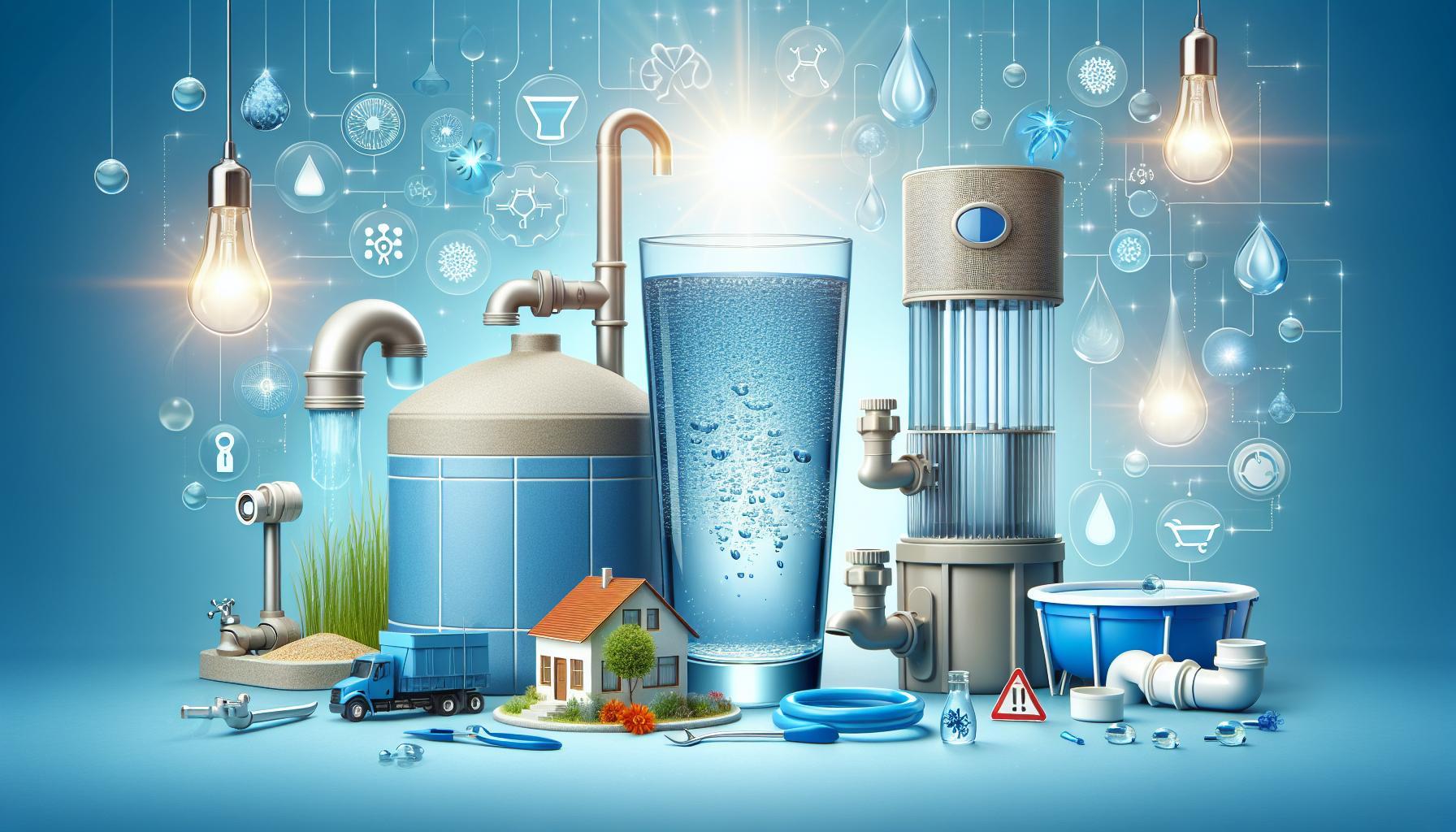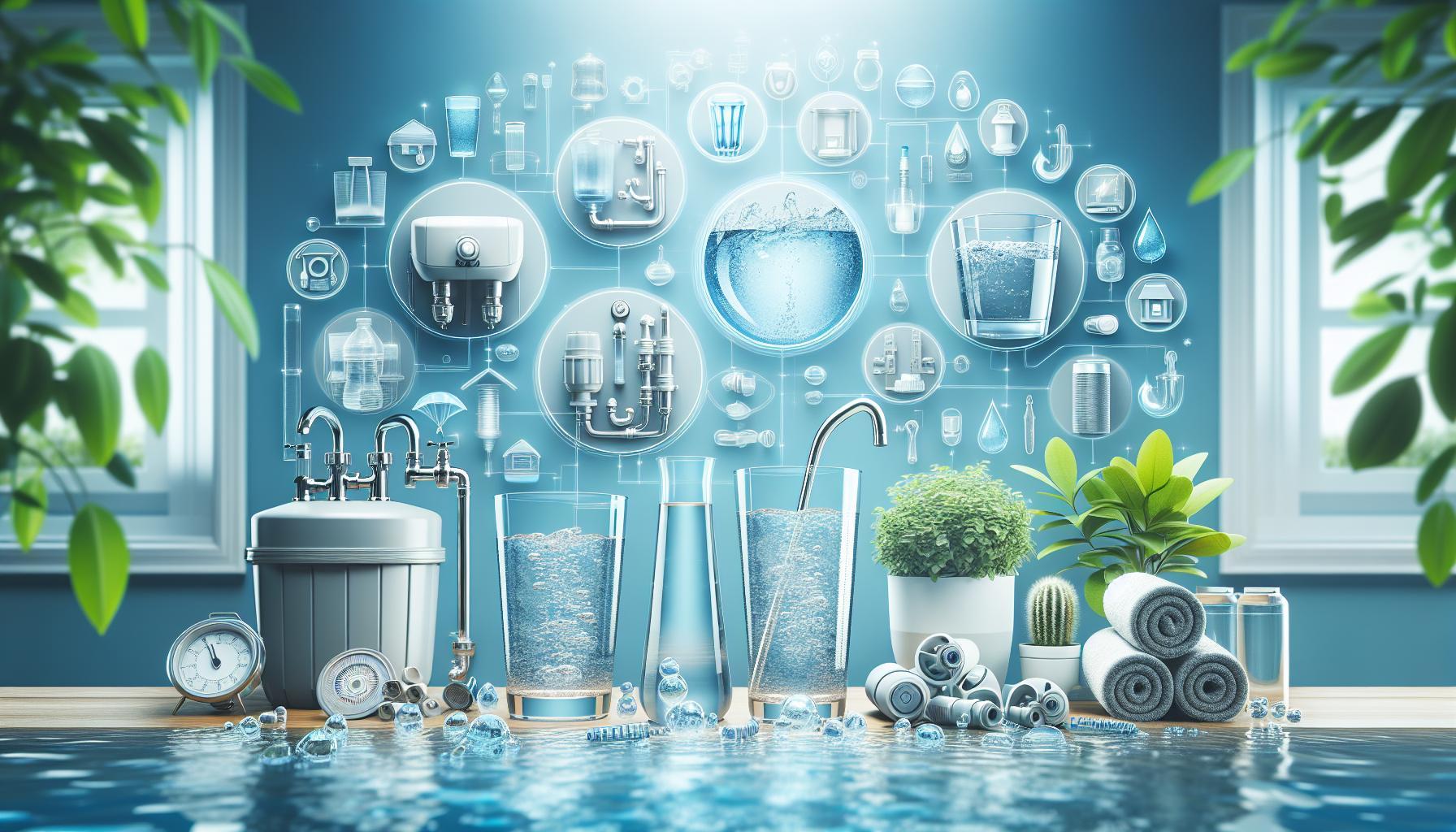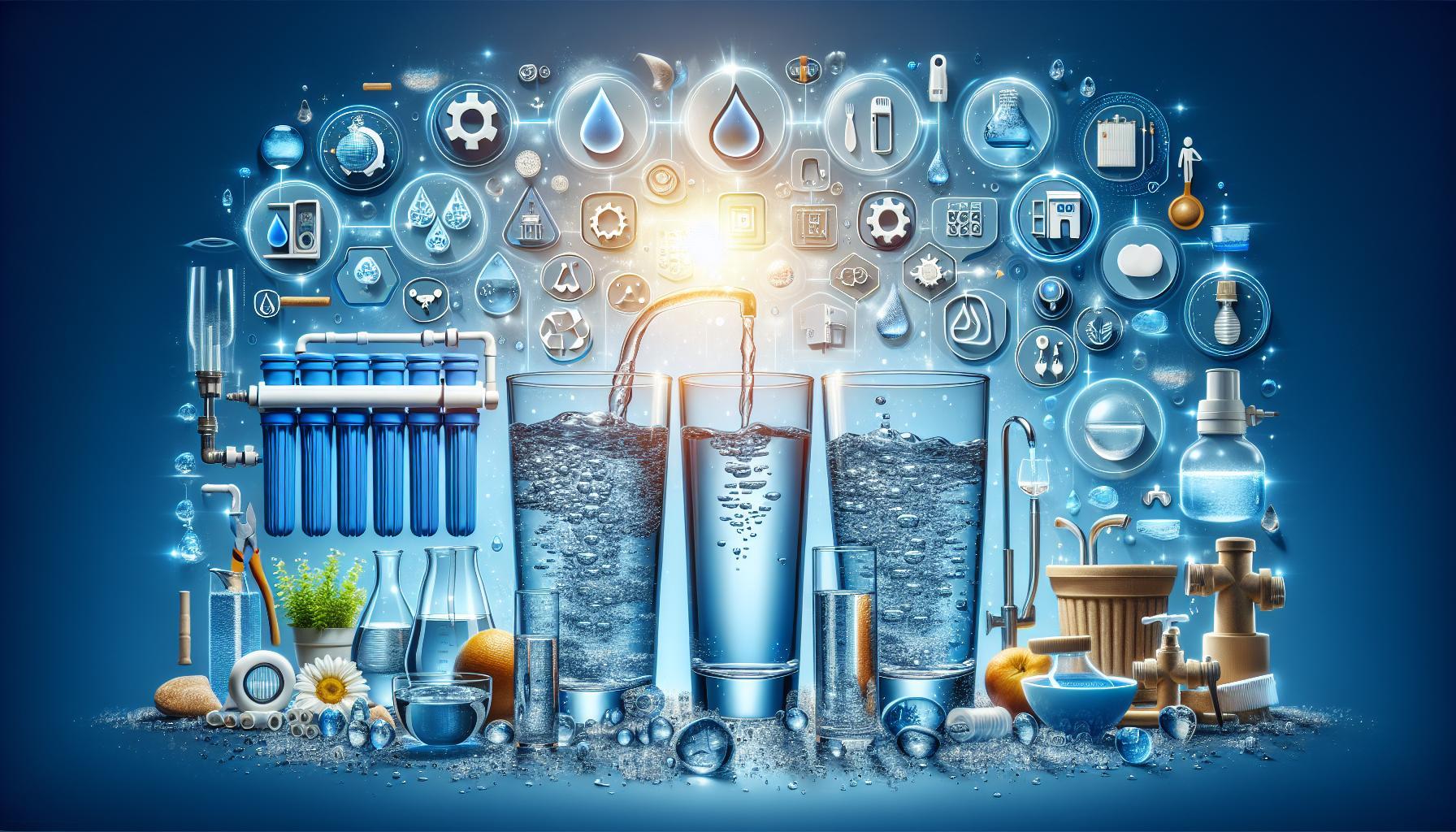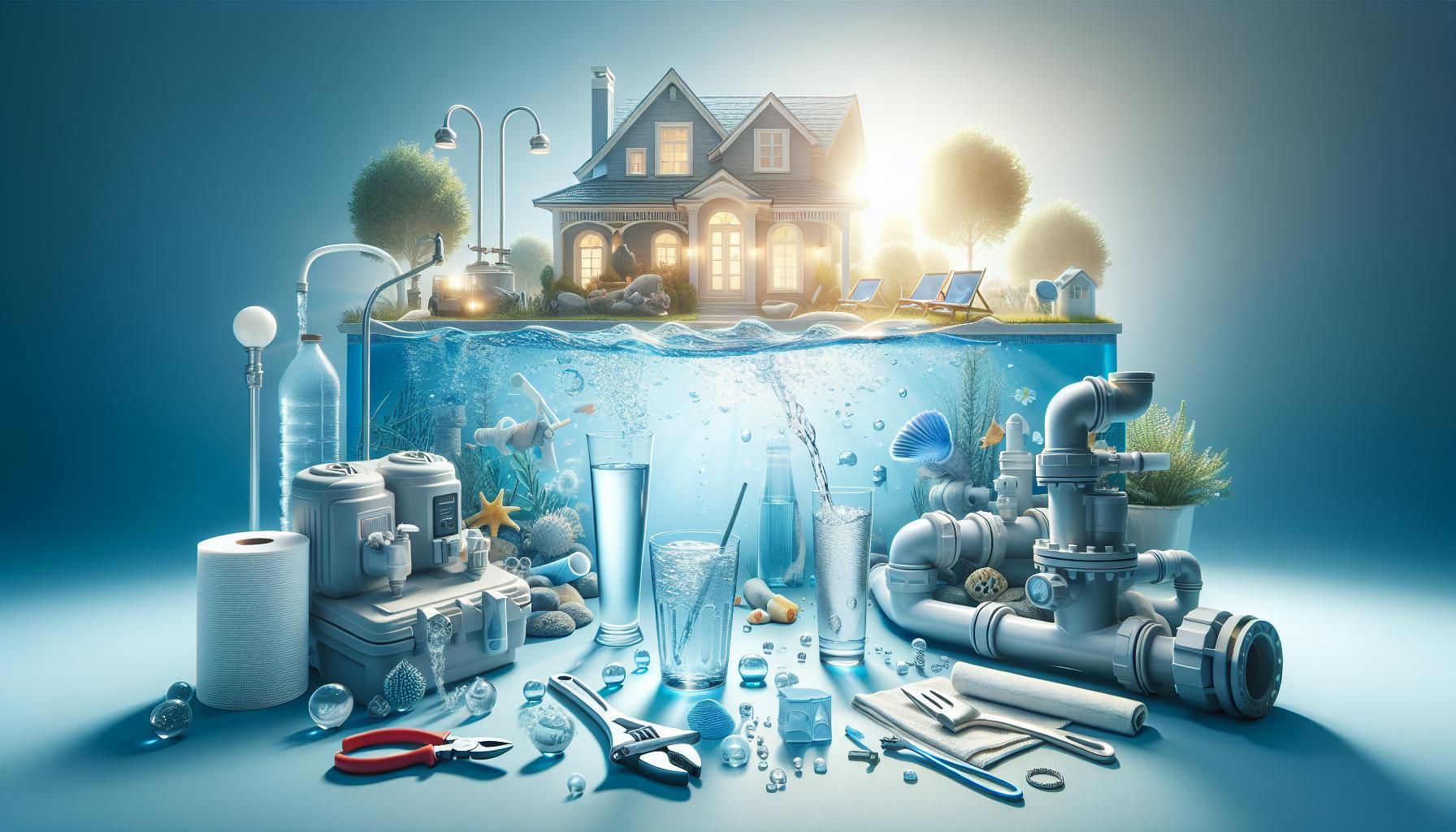Are you confused about the difference between boiled and distilled water? Understanding these distinctions is crucial, especially when it comes to health and hydration. While boiled water may eliminate some pathogens, it doesn’t reach the purity level of distilled water, which is free from impurities and minerals. Discover the key differences that can impact your choices and wellbeing.
Understanding Distilled Water: What Makes It Unique?
When it comes to hydration and health, the type of water you consume can have significant implications on your overall well-being. Distilled water stands apart from other forms of water, particularly boiled or regular drinking water, due to its remarkable purity and the unique process it undergoes. Understanding what makes distilled water distinct not only answers the question, “Is Distilled Water the Same as Boiled Water?” but also highlights its specific uses and benefits.
Distillation is a process that involves boiling water and then collecting the steam as it condenses back into liquid. This method effectively removes impurities, minerals, and contaminants, resulting in water that is nearly 100% pure. In contrast, boiling water may eliminate some pathogens but does not remove minerals or chemical contaminants. Therefore, while boiled water is safer for immediate consumption after pathogen removal, it retains many substances that distilled water lacks.
Key Characteristics of Distilled Water
The unique qualities of distilled water include:
- Extreme Purity: Distilled water is free from dissolved solids and impurities, making it suitable for laboratory use and medical applications.
- Neutral pH Balance: It typically maintains a neutral pH level, which can be beneficial for industrial processes and certain dietary needs.
- Versatile Uses: Beyond drinking, distilled water is ideal for appliances like steam irons and humidifiers, as it prevents mineral buildup.
Practical Considerations for Consumption
While distilled water can be a healthy choice, it also presents some considerations for regular consumption. Since it lacks minerals that are typically present in tap or bottled water, relying solely on distilled water may lead to mineral deficiencies over time. For individuals seeking hydration, incorporating a balanced diet rich in minerals is essential, especially if one chooses distilled water as their primary source.
In conclusion, understanding the unique attributes of distilled water in contrast to boiled water reveals the careful considerations necessary for making informed decisions about your drinking water. Whether you opt for distilled water for its purity or choose other types for their mineral content, being aware of these differences ensures you meet your health and hydration needs effectively.
The Boiling Process: How Does it Affect Water Quality?
When it comes to purifying water, one of the oldest and simplest methods is boiling. This process not only kills a significant number of harmful microorganisms but also impacts the overall quality of the water. Understanding how boiling affects water quality can clarify why many people wonder if distilled water is the same as boiled water. Boiling water significantly reduces the risk of waterborne diseases, making it a common practice, especially in areas lacking access to safe drinking water.
Boiling water works effectively to eliminate pathogens such as bacteria, viruses, and protozoa. As the water reaches its boiling point (100°C or 212°F), these harmful organisms are killed within just a few minutes, making it a reliable method for microbial disinfection. However, while boiling can effectively remove pathogenic threats, it does not filter out chemical contaminants, heavy metals, or solid particulates. Thus, for individuals in areas where chemical contamination or heavy metals are a concern, boiling may need to be supplemented with additional filtration methods to ensure complete water safety.
Furthermore, the boiling process can alter the taste and composition of water. Extended boiling leads to evaporation, which can concentrate certain minerals, potentially enhancing or diminishing the flavor of the water. Some beneficial minerals, such as magnesium and calcium, might also be reduced through prolonged boiling, raising a question about whether boiled water can be as good as distilled water when it comes to mineral content. In contrast, distilled water undergoes a process of evaporation and condensation, which removes impurities and many minerals entirely, leading to a purer, yet potentially less flavorful product.
For practical application, boiling water is straightforward. Simply bring water to a rolling boil and maintain it for at least one minute (three minutes at higher altitudes) to ensure safety. For best results, after boiling, let the water cool naturally to room temperature. Consider using a filter for additional purity if you suspect chemical contamination, as boiling alone will not suffice. By being aware of these distinctions, you can make informed decisions about which water purification method serves your needs best, particularly in understanding the intricate differences between distilled water and boiled water.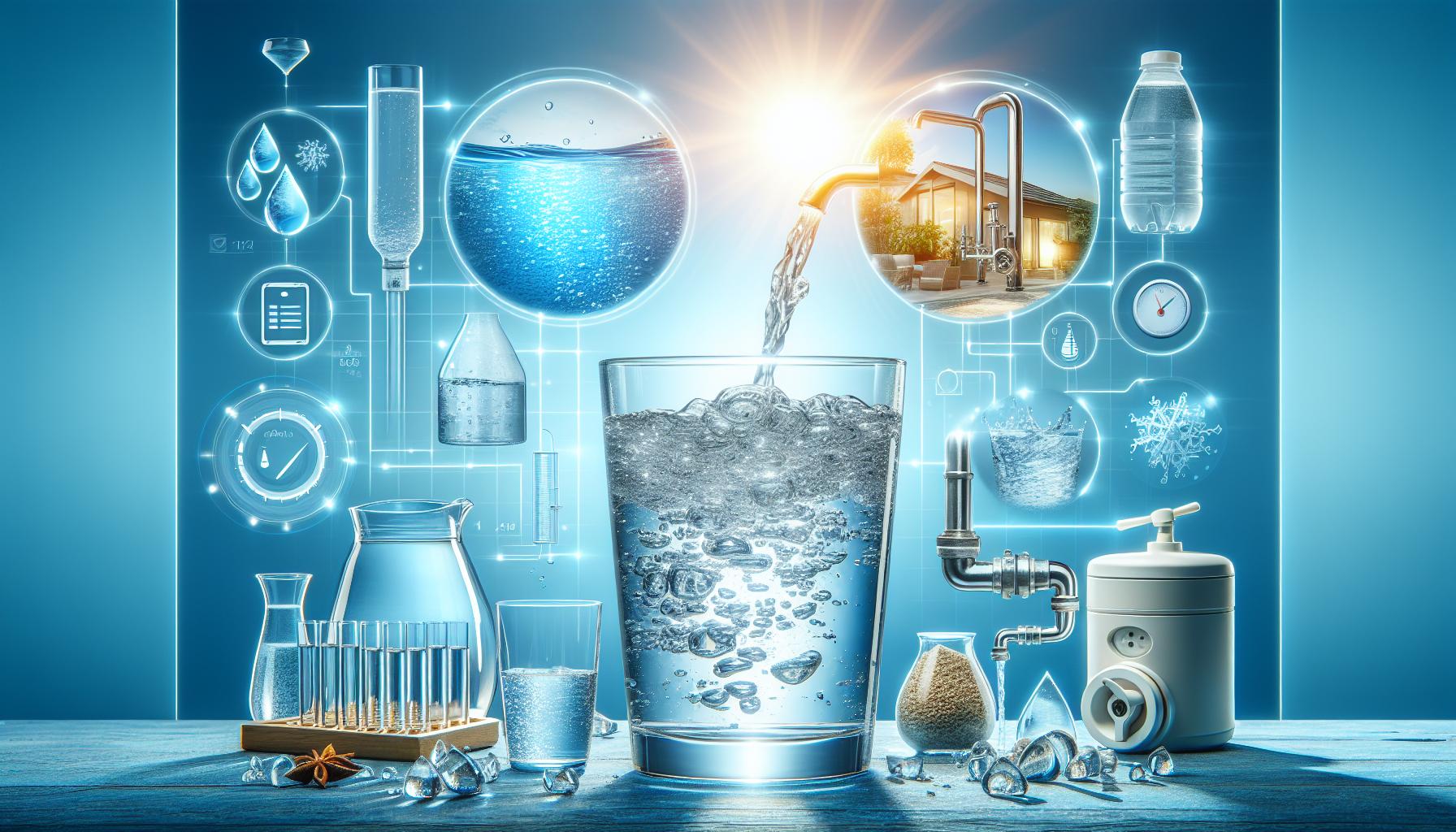
Comparing Purity Levels: Distilled Water vs. Boiled Water
Understanding the differences in purity levels between distilled water and boiled water is crucial for selecting the right type of water for various needs. While both methods involve heating water, the outcomes in terms of purity and safety can be significantly different. Distilled water is achieved through a process of boiling and condensation, effectively removing most impurities, whereas boiled water may still retain some dissolved minerals and contaminants.
### Purity Levels: Key Differences
In the comparison of distilled and boiled water, the essential distinctions can be summarized as follows:
| Aspect | Distilled Water | Boiled Water |
|---|---|---|
| Purity Level | Very high purity; contaminants are significantly reduced. | Contains some impurities and minerals; boiling kills pathogens but does not remove them. |
| Process | Steam is generated and condensed back into liquid, isolating impurities. | Water is heated to boiling point; pathogens are killed but sediments remain. |
| Use Cases | Recommended for laboratory use, aquariums, and any application requiring high purity. | Suitable for general drinking and cooking when clean sources are unavailable. |
Boiled water is often a quick solution in emergencies, effectively eliminating harmful microorganisms. However, the process does not guarantee the removal of other dissolved solids, which may lead to taste differences and potential health concerns, particularly if the original water source contained high levels of contaminants.
On the other hand, distilled water stands out as the purest form, making it ideal for tasks requiring precision and cleanliness, such as in medical or laboratory settings. This means that if you’re considering the question, “Is distilled water the same as boiled water?” the answer is clear: while both serve important roles, their purity levels and applications differ significantly, and understanding these differences can guide you in making informed choices regarding water usage.
Health Considerations: When to Choose Distilled Over Boiled Water
When considering the best choice for hydration and health, understanding the differences in water purification methods is crucial. The distinction between distilled and boiled water can significantly impact health outcomes, particularly in specific contexts. Distilled water undergoes a rigorous purification process that removes minerals, impurities, and contaminants, making it a preferred choice for sensitive applications such as in medical settings, for baby formula preparation, or for people with weakened immune systems.
Why Choose Distilled Water?
There are several scenarios where choosing distilled water over boiled water is advisable:
- Medical Needs: Distilled water is often recommended for mixing medications or for use in medical devices like CPAP machines, as it is devoid of any mineral content or contaminants that could interfere with their function.
- Infants’ Health: For preparing infant formulas, distilled water is a safer option. It eliminates the risk of introducing harmful bacteria and excess minerals, which could lead to health issues in infants.
- Scientific and Laboratory Use: In laboratory settings, distilled water is essential for experiments and analyses, ensuring no variable contamination from minerals or chemicals found in tap or boiled water.
Boiled Water: Situational Use
While boiling water can kill pathogens and is effective in emergencies, it does not purify water in the same way as distillation. Boiling is more about making water safe for immediate consumption by eliminating microorganisms. However, it does not remove heavy metals, chemicals, or other potential contaminants. Therefore, while boiled water is sufficient in many emergency situations or when access to clean water is compromised, it is not always the best solution for long-term hydration needs.
Making the Choice
In making a decision between boiled and distilled water, consider your specific health requirements and the water quality in your area. For example, if you live in an area with plumbing that could leach metals or if your tap water is heavily contaminated, distilled water would be a wise choice. If you’re in an emergency situation or camping where only boiling is an option, boiling the water may suffice temporarily. Ultimately, understanding the key differences between these two forms of water treatment can help you make informed choices that prioritize health and safety.
Environmental Impact: Energy Use in Water Distillation and Boiling
The process of purifying water can significantly impact the environment, particularly through energy consumption. Both water distillation and boiling are common methods for producing purified water, yet they differ notably in their energy footprints and associated environmental effects. Understanding these differences is crucial, especially with the growing emphasis on sustainability in water treatment methods.
Energy Use in Water Distillation
Water distillation is known for its effectiveness in removing impurities and contaminants. However, it is also one of the most energy-intensive purification processes available. This method involves heating water to its boiling point and then capturing the steam, which condenses into distilled water. The high energy requirement arises from the need to maintain consistent heating throughout the process. As a result, distillation contributes to considerable greenhouse gas emissions, a fact underlined by the significant energy consumption associated with the boiling and evaporation stages [[3]](https://kindle-tech.com/faqs/how-does-distillation-affect-the-environment).
Moreover, the environmental impact of distillation extends beyond energy use. It can lead to increased water usage and the generation of waste products depending on the contaminants removed. These factors are critical when evaluating the sustainability of using distilled water as an alternative to other forms of purified water, including boiled water, which may offer a more energy-efficient solution in certain contexts [[2]](https://distilledwaterassociation.org/2023/02/08/the-impact-of-distilled-water-on-the-environment-and-sustainability).
Boiling Water as an Alternative
On the other hand, boiling water is generally a more sustainable method, as it requires lower energy input relative to distillation. While boiling also involves heat, it does not necessitate the same level of energy for condensation, thus making it less taxing on environmental resources. For households and small-scale applications, boiling can often be executed on a stovetop or kettle, devices that might consume less energy overall compared to industrial distillation setups.
Ultimately, the choice between distilled and boiled water should consider both health factors and environmental implications. Boiled water effectively eliminates harmful pathogens without the extensive energy footprint associated with distillation, making it a more eco-friendly option for those who prioritize reducing their carbon footprint.
| Purification Method | Energy Consumption | Greenhouse Gas Emissions | Water Usage |
|---|---|---|---|
| Distillation | High | High | Variable |
| Boiling | Moderate | Moderate | Low |
This comparison highlights critical factors for consumers when deciding between distilled and boiled water. As more people seek sustainable choices in their daily lives, understanding the environmental consequences of these purification methods is key to making informed decisions.
Practical Uses: Choosing the Right Water for Your Needs
Understanding the differences between distilled and boiled water can have a significant impact on your health and everyday life. While both methods involve the process of heating water, the end products serve different purposes due to the way impurities are handled. This knowledge empowers you to make informed choices about which type of water best suits your needs.
Common Uses of Distilled Water
Distilled water is often recommended when purity is paramount. Here are some practical applications:
- Medical uses: Distilled water is commonly used in medical settings for equipment cleaning and diluting medications. Its purity reduces the risk of infection.
- Cooking: In recipes requiring precise measurements, especially in baking, distilled water can help achieve consistent results without added minerals affecting flavor.
- Aquariums: Fish and plant health in aquariums can be significantly improved using distilled water, as it eliminates chlorine and other harmful substances.
- Household appliances: Using distilled water in steam irons and humidifiers can prevent mineral buildup and extend the life of these devices.
When to Choose Boiled Water
Boiled water, while not as pure as distilled, still offers benefits in specific situations:
- Emergency preparedness: Boiling water is a simple method to make water safe in emergency situations, as it effectively kills most pathogens.
- Everyday hydration: For general drinking purposes, boiling water is an excellent way to ensure safety in areas where the water supply may be questionable.
- Cooking: While boiled water does not purify to the extent of distilled water, it is suitable for cooking tasks where contaminants are less of a concern.
Weighing Your Options
Ultimately, the choice between distilled and boiled water depends on your specific needs. While distilled water offers the highest purity and is ideal for sensitive tasks, boiled water serves as an effective solution in situations needing immediate action or when dealing with safe, everyday hydration. By understanding “Is Distilled Water the Same as Boiled Water? Key Differences Revealed,” you empower yourself to select the right water type for your health and household requirements.
Myths and Misconceptions: Clarifying Common Water Myths
When it comes to understanding the difference between distilled water and boiled water, numerous myths and misconceptions abound, leading many people to believe they are interchangeable. One common belief is that boiling water makes it just as pure as distilled water, but this is far from the truth. While boiling does eliminate some microorganisms, it can leave behind impurities and dissolved minerals that affect the water’s overall quality.
Myth: Boiled Water is Pure Like Distilled Water
Many individuals assume that boiling water thoroughly purifies it. However, boiled water retains the minerals and impurities present before boiling, making it different from distilled water. Distilled water undergoes a more complex purification process where water is boiled and the steam is collected and condensed back into liquid form, stripping it of all minerals and contaminants. This method ensures that distilled water is essentially pure H2O, free from any dissolved solids that can impact taste or function in applications like aquariums or steam irons.
Myth: All Water Types are Interchangeable
Another prevalent misconception is that any type of water can be used interchangeably. This belief can lead to problems, especially in specific applications. For instance, using boiled water in a steam iron may leave mineral deposits that can damage the appliance over time, whereas distilled water is specifically recommended for this purpose due to its lack of minerals. Similarly, in medical settings where purity is vital, distilled water is preferred since it does not contain any contaminants that could potentially affect health outcomes.
Key Differences to Remember
To clarify these myths, it can be helpful to summarize the key differences:
| Feature | Boiled Water | Distilled Water |
|---|---|---|
| Purification Method | Boiling | Boiling and condensing steam |
| Mineral Content | Retains minerals | Free from all minerals |
| Use Cases | Basic drinking and cooking | Medical and laboratory use, steam irons, aquariums |
| Microbial Contamination | Kills some microorganisms | Eliminates all impurities |
In light of these distinctions, it’s crucial for consumers and professionals alike to understand when to use each type of water. Whether you’re filling up your steam iron or looking to hydrate, knowing that distilled water offers a higher level of purity will lead to better decisions and outcomes.
Water Taste and Mineral Content: What You Should Know
The flavor of water is often overlooked, yet it can vastly differ depending on its mineral content. Many people might not realize that the tasting notes of water can be as complex as that of fine wines. This experience stems from the presence of natural minerals, which contribute significantly to water’s overall taste profile. Studies indicate that water enriched with specific minerals such as calcium, magnesium, potassium, and bicarbonate can enhance the refreshing quality of the beverage, making it more appealing and thirst-quenching [[2](https://www.water.com/education/why-do-minerals-make-water-taste-better/)].
The Importance of Mineral Content
Mineral content isn’t just about taste; it also impacts the health benefits of the water we consume. For example, magnesium offers a crisp, slightly bitter taste, while calcium can provide a smooth, creamy mouthfeel. In fact, sensory studies involving trained panelists have shown that variations in mineral composition lead to distinct flavor perceptions [[1](https://pmc.ncbi.nlm.nih.gov/articles/PMC7765973/)]. Therefore, the next time you sip water, consider how its mineral makeup could be shaping your experience.
What About Distilled and Boiled Water?
When discussing the differences highlighted in the article ‘Is Distilled Water the Same as Boiled Water? Key Differences Revealed,’ it’s crucial to note that both distilled and boiled water lack many of these beneficial minerals. Distilled water undergoes a rigorous process of purification that removes not only contaminants but also minerals, resulting in a flat, sometimes bland taste. Boiled water, on the other hand, retains some minerals as it simply vaporizes pathogens and impurities but doesn’t remove all substances [[3](https://www.vice.com/en/article/taste-water-sommelier-tap-distilled-minerals/)].
- Distilled Water: Lacks minerals
- Boiled Water: Retains some minerals
Understanding how different water types taste can influence your choices significantly. For instance, if you’re seeking a refreshing drinking experience, opt for mineral-rich water or lightly boiled options. However, if you need water for cooking or preparing beverages where a pure flavor is preferred, distilled water might be the better choice. It all comes down to what fits your needs and enhances your experience.
Frequently Asked Questions
Is Distilled Water the Same as Boiled Water?
While both distilled water and boiled water involve the removal of impurities, they are not the same. Distilled water is produced by boiling water and then condensing the steam back into a liquid, effectively removing minerals and contaminants. Boiled water, however, retains minerals, as the process only kills bacteria.
How does the distillation process work?
The distillation process involves heating water to create steam, then cooling that steam to collect purified water. This method eliminates contaminants, such as minerals and bacteria. As a result, distilled water is often used in laboratories and medical settings for its high purity.
What are the health implications of drinking distilled vs. boiled water?
Drinking distilled water is generally safe but can lead to mineral deficiencies if consumed exclusively due to its lack of natural minerals. Boiled water, while safe for consumption, retains minerals that may be beneficial. A well-balanced diet is important regardless of the water type.
Can I use distilled water for cooking?
Yes, you can use distilled water for cooking. However, using it frequently may result in mineral loss in your food, as distilled water can leach minerals. For most cooking applications, regular tap or filtered water is preferable for flavor and mineral content.
Why does boiled water have a different taste?
Boiled water tends to taste different because it retains minerals and compounds present in tap water. These minerals contribute to the flavor profile of water. Distilled water, on the other hand, has a flat taste due to the absence of these minerals.
Is distilled water more effective for detoxification?
Some claim that distilled water helps with cleansing the body because of its purity, but this is a debated topic. While it can aid in flushing out toxins, overall hydration and a balanced diet play a more significant role in detoxification.
Should I drink distilled water every day?
Drinking distilled water daily is safe if you ensure your diet is rich in essential minerals. Relying solely on distilled water can lead to deficiencies over time, as it is void of the minerals commonly found in other water sources.
Insights and Conclusions
In conclusion, understanding the differences between distilled water and boiled water is crucial for making informed choices for your health and daily needs. While both processes are effective in improving water quality, distilled water stands out for its higher purity level, achieved through a meticulous condensation process that eliminates most impurities. In contrast, boiled water may still retain minerals and other substances present before boiling. We encourage you to explore further the various uses and benefits of each type of water, so you can confidently address your water-related challenges. Whether you’re choosing water for drinking, cooking, or even scientific experiments, knowing these distinctions will empower you to make the best choice for your situation. Dive deeper into the fascinating world of water to unlock its secrets and enhance your well-being!

